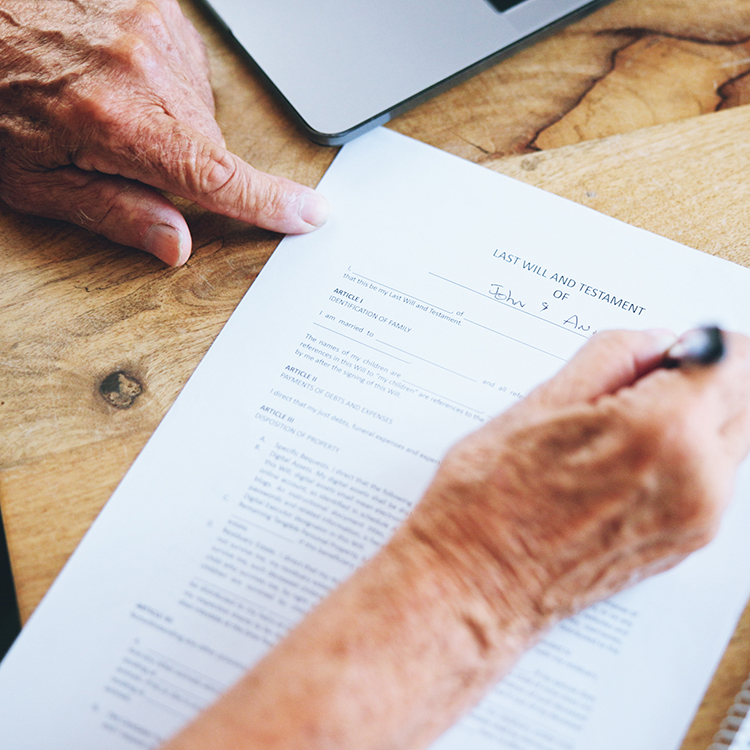
Top tips for keeping your home healthy this winter
Stay warm, dry and cosy this winter with these easy and cost-effective tips.

If you want to protect your loved ones, having a legally binding will is vital. We share top tips for getting this important document sorted.
Did you know that if you die without a will the Government will dictate how your assets are divvied up? Or that when you get married, the will you wrote before tying the knot is no longer valid?
If you want to protect your loved ones, having a legally binding will is vital. Not only does it put you in the driver’s seat when it comes to who inherits what, but it enables you to name a guardian for your kids and outline any final wishes such as leaving money to charities or special details for your last hurrah. The time and costs associated with settling an estate without a will – AKA dying intestate – skyrockets by an average of 50%, so having a will can also save a whole lot of time, money and stress for those left behind.

Here in Aotearoa, only around half of people over 18 have a will. Research shows that many of us don’t even think about creating one until we experience a life changing event, like getting married, having kids, or buying a house. But unless you want someone else to be the gatekeeper of your hard-earned riches and if you’re over 18 with more than $15,000 of assets (including KiwiSaver), making a will should be top of your ‘to do’ list.
“One of the biggest misconceptions among Kiwis is that wills are only necessary for the wealthy or elderly, but wills and estate planning shouldn’t be seen as something dealt with at retirement age, it’s a conversation we need to have much earlier in life,” says Belinda Heunis, Chief Business Officer at Footprint, New Zealand’s largest provider of online wills.

“Around 7% of 20 – 30-year-olds have a will and the average KiwiSaver for 26 – 30-year-olds is $17,326. With the Great Wealth Transfer expected to move trillions of dollars from Baby Boomers to Gen X, Millennials and Gen Z, it’s never been more important to protect future generations. Normalising wills at a younger age helps people safeguard their assets and gives them greater peace of mind.”
The good news is that creating a will isn’t the arduous task many might think – in fact it can be done quickly and easily from the comfort of home. While some people choose to do it themselves (yes, DIY wills are a thing), the majority lean on the professionals (either online or in person), using a lawyer or trustee company like Public Trust, an Autonomous Crown Entity that’s been helping Kiwis protect their legacies since 1873. (They’re also the driving force behind New Zealand’s annual Wills Week, which this year runs from July 14 – 21.)

Launched in 2018, myfootprint.co.nz is significantly younger, but equally passionate about supporting New Zealanders to take charge of their legacies.
“We’re on a mission to change the perception that wills are only for the elderly, or those with a lot of assets, by raising awareness, increasing knowledge and making it easier for people to take action to protect their families and avoid unnecessary hardship,” explains Belinda.
Footprint was the first to introduce a subscription-based model for wills and estate administration, including not just a will but other services like a secure digital vault for storing important documents, a notification tool to alert loved ones to the location of the will when it’s needed, a reward programme offering discounted estate administration and an annual will update. Not surprisingly, in a world where subscriptions are the norm (from Netflix to gym memberships to groceries), subscriptions have become Footprint’s most popular product offering.
But regardless of who helps you to write your final chapter, the most important thing is writing a will in the first place. Make sure it’s signed and witnessed (if you don’t follow the proper procedures, it may not be valid), review it regularly and update it if life changes.
This story is from the Winter 2025 issue of AA Directions magazine.